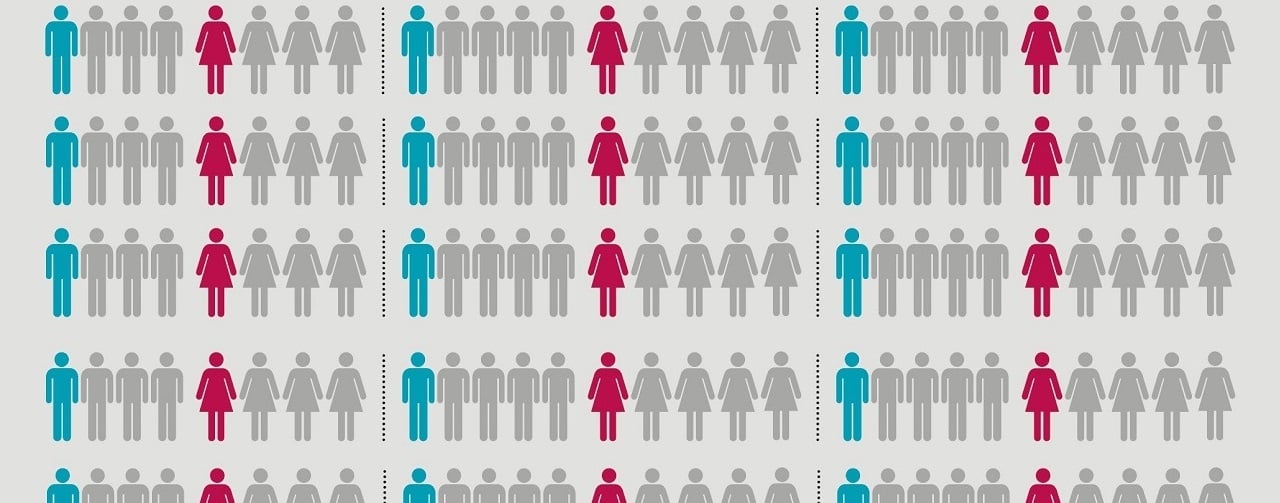The Natsal surveys have been carried out every 10 years since 1990. More than 45,000 people have been interviewed and the findings have helped to shape sexual and reproductive health policy in Britain.
Natsal is led by a research team from the London School of Hygiene & Tropical Medicine, UCL and NatCen Social Research (NatCen).
See results from the Natsal studies and download infographics to illustrate some of the key findings.
The National Survey of Sexual Attitudes and Lifestyles (Natsal) is one of the largest and most comprehensive studies of sexual behaviour and lifestyles in the world, and is a major source of data informing sexual and reproductive health policy in Britain.
The project is led by a research team from the London School of Hygiene & Tropical Medicine, UCL and NatCen Social Research (NatCen).
The survey has been carried out every 10 years since 1990, involving interviews with a total of 45,000 people. More than 15,000 adults aged 16-74 participated in the latest survey (Natsal-3) in 2010. Data collection for Natsal-4 will take place September 2022 to December 2023.
Studying such a large representative sample of people living in Britain allows us to produce key estimates on patterns of sexual behaviour, attitudes, health, and wellbeing across the population. Results from Natsal-3 showed that different aspects of sexual health affect people at different times throughout their lives, and that sexual health is an important component of our overall health and wellbeing. They also revealed how sexual attitudes and lifestyles have changed in the last sixty years.
Background
The first Natsal survey was conducted in 1990 in response to an urgent need for information about sexual practices in the context of the HIV/AIDS epidemic. A total of 18,876 men and women aged 16-59 years were interviewed. The survey provided much needed data to predict and prevent HIV transmission in Britain.
The data were used more widely than had been anticipated, by academics and practitioners in the fields of sexual health epidemiology, policy and practice.
Towards the end of the 1990s, new data were needed to investigate changes in sexual behaviour and to respond to demand for up-to-date information.
In response, Natsal-2 was carried out in 2000 and included 12,110 adults aged 16-44. The objectives of Natsal-2 were broader and it also aimed to provide a detailed understanding of patterns of sexual behaviour in Britain; provide data for HIV/AIDS projections in Britain; assess whether there had been changes in sexual behaviour since Natsal-1; and measure the prevalence of Chlamydia trachomatis infection, via the collection and analysis of urine samples.
Impact
Natsal findings play an important role in informing health policy in Britain. The studies provide valuable data for predicting and preventing HIV/STI transmission, and for improving our understanding of sexual and reproductive health. The data have been extensively used to design and promote sexual health education and services, and the methodology has been replicated elsewhere.
The studies have contributed to:
- The National Sexual Health & HIV Strategy in England; the Scottish Sexual Health Strategy (2005-) and the Welsh Sexual Health Strategy
- The Teenage Pregnancy Strategy (2000-2010)
- The National Chlamydia Screening Programme (NCSP)
- The national human papillomavirus (HPV) immunisation programme in 2008/9
- The statutory provision of Personal, Social, Health & Economic (PHSE) education in schools in 2009
- Sexual health campaigns, such as "Sex: worth talking about" in 2010
- National Institute for Health and Clinical Excellence (NICE) guidelines on, for example, long acting contraception (2006)
Kaye Wellings discusses the findings from Natsal-3
Sexual partners study could help improve estimates of STI transmission rates.
New study shows increasing diversity in young people’s heterosexual practices, helping to develop understanding of current sexual trends which could help guide education policy and safeguard young people’s health and well-being.
Read the full article on changes on young people's sexual practices
British women living with a partner are more than twice as likely to lack interest in sex compared to men living with a partner, according to a new study published in the BMJ Open.
Nearly one in 10 British women are experiencing painful sex (dyspareunia), according to a new study published in BJOG: An International Journal of Obstetrics and Gynaecology.
Around one in ten young men and one in eight young women in Britain who are sexually active have experienced a distressing sexual problem lasting at least three months in the past year, according to new research published in the Journal of Adolescent Health.
Read the full article on distressing sexual problems for young people
One in eight women and one in ten men have experienced infertility, yet nearly half of them have not sought medical help, according to a study of more than 15,000 women and men in Britain published in the journal Human Reproduction.
The authors of the study published in Sexually Transmitted Infections call for safer sex information to be routinely provided in pre-departure travellers’ health advice regardless of age, destination or reason for travel.
An estimated 1.8 million adults in Britain are experiencing sexual problems that need medical help but only around one third of these men and women seek professional support, according to new research published in the Journal of Sex Research.
Read the full article on people experiencing severe sexual problems
More young people than ever are getting most of their information about sexual matters from school, but the majority feel they are not getting all the information they need, and men in particular are missing out, according to new research published in BMJ Open.
Read the full article on sex and relationship education for young people
11% of men in Britain report having ever paid for sex and 3.6% report doing so in the past five years, according to findings published in Sexually Transmitted Infections.
Results published The Lancet give the most detailed picture yet of the British population’s sex lives over the last 10 years.
Natsal is led by a research team from the London School of Hygiene & Tropical Medicine, UCL and NatCen Social Research (NatCen). School researchers working on the project:



